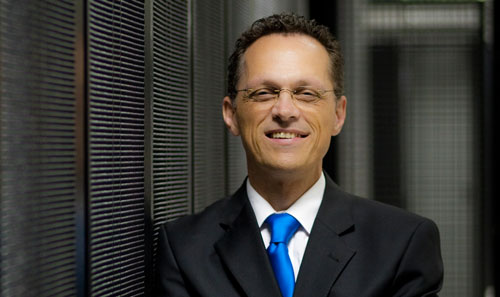
Broadband, whether fixed or mobile, should be billed on a per-usage basis or via reasonably priced bundles, but under no circumstances should be uncapped, says Altech Technology Concepts CEO Wayne de Nobrega.
“The idea of uncapped is great, but when the service is offered, it is chased by abusers,” says De Nobrega. “People don’t look at it as allowing them to behave as they normally would without fear of running out of data. They want to see how much they can get.”
Technology Concepts is a subsidiary of JSE-listed technology group Altech.
De Nobrega’s view is a controversial one, especially in light of more and more Internet service providers and operators offering all-you-can-eat options. MWeb started the trend 18 months ago with its uncapped fixed-line broadband products, with other service providers following suit.
And just this week, MTN said it would offer four months of true uncapped mobile data on two of its packages for customers who sign up for 24-month contracts, suggesting the model is gaining favour among the cellular operators, too. The MTN promotion takes effect on 1 October.
De Nobrega says uncapped packages for both fixed and mobile services could become a reality, but only “if everyone takes a deep breath and is realistic about usage rather than abusing the system whenever they get the chance to”.
He says there is “no way” a service provider can meet the demands of “abusers” and remain sustainable. “Why should everyone else be reasonable and pay for the abusers?”
Rather, De Nobrega believes the solution to the problem of abuse lies in operators offering better capped products. “Unless you are downloading illegal content, 10GB/month is more than enough for most people,” he argues. “A very small percentage of large-scale users are paying for content via iTunes or similar services, the rest are simply pirates.”
Those responsible for enormous data use claim that by paying for an uncapped service it’s their right to do so, but De Nobrega says their actions are what make widespread uncapped offerings unsustainable for operators and service providers.
He says the only reasonable approach is to charge people for data used, or to offer sizeable caps with reasonable out-of-bundle rates or optional add-ons once users reach their data limits.
“Phone calls aren’t uncapped, whether they’re fixed or mobile or voice-over-Internet Protocol, so why do we have this view about [data] connectivity?”
De Nobrega says those that “shout the most for [uncapped services] are generally the abusers” and, by enabling them, networks’ quality of service is affected, which in turn affects the rest of the subscriber base, most of whom are “reasonable” in their usage.
He says capped models with reasonable pricing, or pay-per-use models that aren’t prohibitively expensive and don’t penalise consumers with high rates the way prepaid cellphone models do will result in better service levels across the board.
“We need to rethink how we bill for connectivity, particularly because demand is going to change in coming years,” says De Nobrega. “But we don’t need to let people download 750GB of content in a month. After all, that’s more [media] than they can consume in the same period.” — Craig Wilson, TechCentral
- Subscribe to our free daily newsletter
- Follow us on Twitter or on Facebook
- Visit our sister website, SportsCentral (still in beta)

